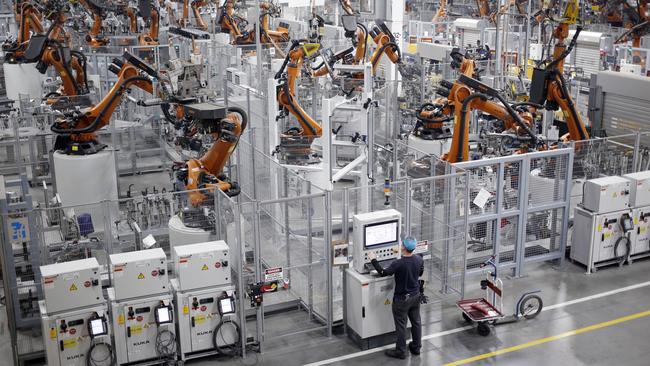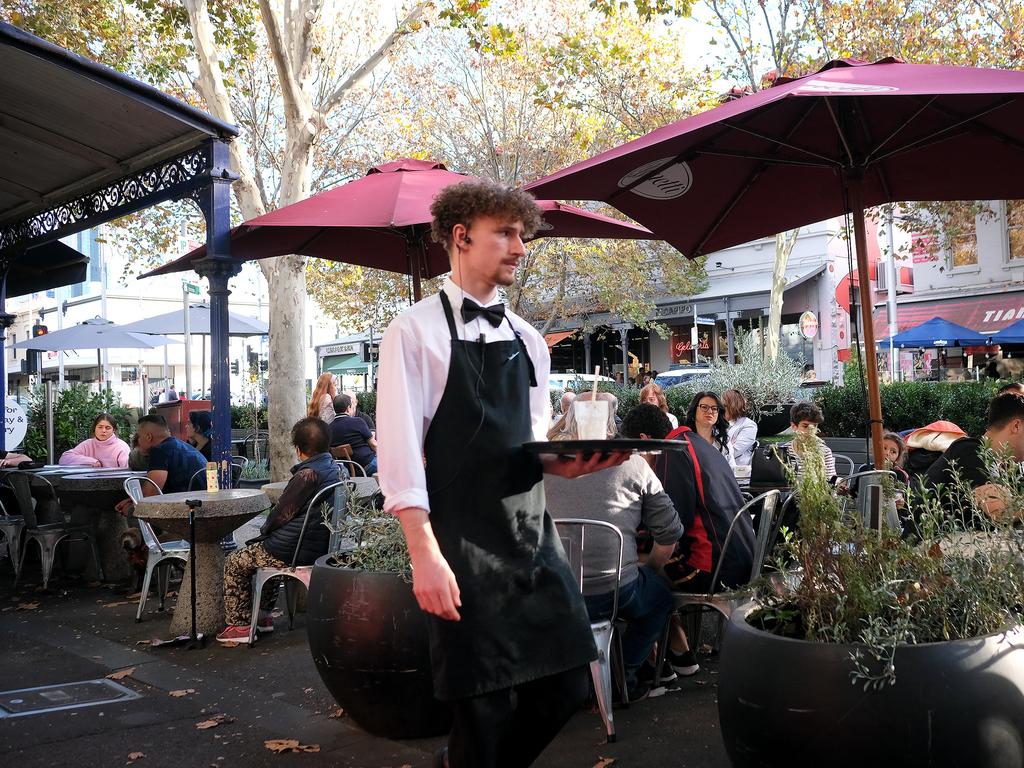Budget 2021: The only way is down for pay if inflation takes its toll
Annual wages growth will remain below or equal to the forecast inflation rate until 2024, delivering real wage cuts to workers.

Annual wages growth will remain below or equal to the forecast inflation rate until 2024, delivering real wage cuts to workers for another 14 months after years of stagnating pay packets.
Treasury predicts annual wages growth will come in at just 1.25 per cent this financial year, compared to a 3.5 per cent rise in the consumer price index. Over the 12 months to June next year, wages growth will be 1.5 per cent, still trailing a forecast CPI rate of 1.75 per cent.
Wage growth and the CPI are both tipped to come in at 2.25 per cent in the 12 months to June 2023 and 2.5 per cent in the subsequent 12 months.
According to Treasury, it will only be in the 2024-25 financial year that forecast wages growth of 2.75 per cent exceeds a predicted 2.5 per cent CPI increase. Given the economic volatility, and the government’s record of over-estimating wages growth, this forecast for the final year of the forward estimates should be treated with a high degree of scepticism.
Unions have put employers on notice they will make a concerted push for pay rises if the improving economy avoids more lockdowns, declaring frustrated workers will have a “strong appetite for wage increases”.
Business has acknowledged the poor outlook for wages growth and says the government should seek to revive measures from its industrial relations omnibus bill which was gutted earlier this year, leading only to casual employment changes being legislated.
The ACTU says workers accepted the need for pay freezes in 2020 but there would be “a lot of pent-up demand for wages increases come the end of the year”.
ACTU president Michele O’Neil said workers “fairly expect to see the improvement in the economy come their way”.
“At the moment, we’re basically seeing it all go into (corporate) profits, and the labour share of our GDP is the lowest on record,” she said. She said pressure would build in certain industries, including manufacturing, construction and education and the public sector where there was a high proportion of workers in full-time, secure employment.
“In sectors where there’s bargaining power, you will definitely see increased demands from unions and workers for wage increases — and that’s a good thing. It’s a good thing in terms of winning better wages, but also it’s good for the economy,” she said.
“The recovery so far has been highly dependent on consumer spending. And for that to continue you have to see money in people’s pockets that allows them to spend.”
Business Council of Australia chief executive Jennifer Westacott said the government should push to reintroduce proposed changes to the enterprise bargaining system.
“We were very disappointed that one of the things that didn’t get up in that IR reform was the fixing of the enterprise bargaining system,” she said.
“We’ve got to stay focused on that because people on an EBA on average get $100 a day more than people on an award. So there are some things within our control on wages and we should really take all of the levers and pull them hard.”
Industrial Relations Minister Michaelia Cash said the government would continue to work with the Senate crossbench to try to get the industrial relations changes passed.







To join the conversation, please log in. Don't have an account? Register
Join the conversation, you are commenting as Logout